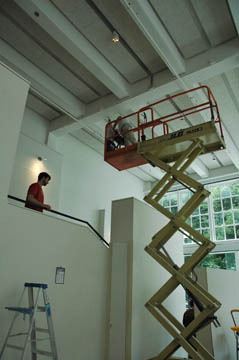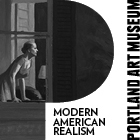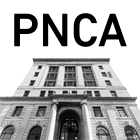
|
||
|
Portland art blog + news + exhibition reviews + galleries + contemporary northwest art
|
||
Perspectives on Desoto project and history lesson  Museum of Contemporary Craft exhibition space photo by Sarah Henderson Ok now that the big opening weekend has ended let's give the Desoto project some more sober analysis beyond the not underserved fawning weve already experienced. Sure it is a great project and a solidifier for the Pearl District as a high density visual arts district that couldn't have happened without developer Jim Winkler. The area between NW 5th and NW 12th has been home to a dizzying array of galleries, art schools and now a museum. The Desoto does make the North Park blocks a destination, but it hardly redefines Portland's scene or acts as a tipping point. It is simply a really smart and logical extension of what continues to happen here. The question is what next and how? Regarding the hype so far: the Oregonian is written by journalists, not historians and there is a huge difference...akin to the difference between a general practitioner and a surgeon. Let's just say journalists like nice neat packages, historians generally don't. The Desoto is a neat package and redefining the art scene in Portland wasn't the goal of the project. Instead of a paradigm shift it was a way to continue and solidify momentum, which puts it on a similar level with things like the beginning of The Affair at the Jupiter Hotel art fair as well as the purchasing of spaces on 9th Avenue by Elizabeth Leach gallery, PDX gallery, Pulliam Deffenbaugh and the soon to open Lumber Room. Here are some tougher questions: Will owning their spaces really make the galleries more adventurous? I doubt this because when PDX, Elizabeth Leach and Pulliam Deffenbaugh bought spaces in 2004-5 it made them more conservative at first (mortgages do that). Thankfully, now that they have settled in those galleries have loosened up a bit. Liz and PDX have featured video installations and Pulliam Deffenbaugh has produced tighter shows with their more focused space, though I suspect this has more to do with art fairs and outside of Portland sales than owning their spaces. Also, none of the Desoto galleries have the more cutting edge reputation that the main 9th street galleries have, will they let that stand? Truth is the Desoto is an important concentration of some of the more conservative spaces in town (which isnt a sin but it doesn't exactly create new patrons). So will the Desoto's tenants really alter course all that dramatically?...it is a good time to try. Also, it's true that the Museum of Contemporary Crafts has something to prove and previous shows like Zen Parry and the hiring of forward thinking curator Namita Wiggers made us think that they have some important contributions to make to Portland's contemporary scene... how about a Liza Lou, Ken Price or Josiah McElheny show? Bluesky (which has the best space) seems to be poised to get more ambitious about the cutting edge aspect of its programming as well. They can finally show large format work in this new space and I wonder how far they will stray from the documentary photography they have become known for? Is the Desoto really a model or simply a realignment of the last visual arts entities in town with any kind of consistent track record? In other words it may be that there is nobody left with a business history that might warrant a similar approach. If the city wants to continue this sort of intelligent cultural development it will require incentives for developers to lease reduced rate spaces to cultural tenants. Vancouver BC has already implemented innovative initiatives that allowed the CAG to move into a great new space and netted the developer some height an square footage incentives. Without Randy Gragg at the Oregonian I wonder who will spearhead such discussions at that paper? Frankly, relying on a developer's good will just isn't good thinking, whereas "encouraging" baiting developers with incentives is smart because well intentioned developers like Jim Winkler, Al Solheim, Brad Malsin, Randy Rappaport, David Gold, Ken Unkles, Gerding & Elden and Homer Williams can justify the effort more if some of the rules push them in that direction. I proposeremoving some of the dams to Portland's cultural salmon runs. Otherwise developments like the desoto are near outright labors of love which is very rare (considering the opportnity costs). Portland requires some innovative models to really own the "cultural city" moniker it craves. Where do Mayor Tom Potter and Commissioner Sam Adams stand on the issue of incentivising cultural tenants as anchors in a manner similar to development in Vancouver BC? Right now both the Desoto and the Armory projects have used new market tax incentives, which is a bit like putting a square peg through a round hole because low income neighborhoods must be involved (the districting for both projects included the more impoverished chinatown area). The city can get more serious about cultural development as economic multiplier by specifically targeting cultural spaces. I see this as the most important opportunity that Portland faces as a serious cultural city. For perspective here are the 3 most major historical events since I moved here in 1999, everything outside of these events has simply built on their momentum: 1)In 2000 Tracy Savage procured the Greenberg collection for the Portland Art Museum. This also involved the subsequent hiring of Bruce Guenther as chief curator at PAM and forced the museum to expand its contemporary exhibition spaces. Though Savage's gallery business failed, her chutzpah has been felt in nearly ever action since. Like it or not I can't see how anyone could argue against this choice as #1 since it raised everyone's expectations. 2)1999 Oregon Biennial. In a word it "remade" Portland's art scene by giving it a swift kick in the ass, it was highly controversial mostly for its adventurousness. Artists like Michael Knutsen and Tom Cramer unloaded strong mature new styles and new artists like Sean Healy, Jacqueline Ehlis, Brenden Clenaghen were introduced (later becoming major sellers). Other artists like Storm tharp, Heidi Schwegler made a huge splash. For the first time installation and video artists were foisted upon Portland and the city was given notice a sea change was in effect. Today it would have been instantly accepted and not quite on par with the level that we expect today. 3)The entire 2003 art season: It was a year of scene defining group shows (some
good some bad) here is a complete list of shows that mattered; Beamsplitters
( a really good video installation show, Pearl District),
I.A.E. (a fascinating video art and documentary show put on by Red 76 at
Laurelhurst Movie theater), Blood and Guts Forever (a nice, if rather bloodless
and gutless show in pastel hues curated by Brad Adkins at the art Gym), The
Best Coast (curated by yours truly during the American Association of Museums
convention... the packed opening was so curator studded it made it difficult
to see the show), 2003 Oregon Biennial (a much criticized show for its painting
focused and cramped feel), The Modern Zoo (a huge, mostly bad show with 4 good
rooms by David Eckard, Chandra Bocci, Bovee & Blanc and Melody Owen whose
inclusivity insured more attention than praise), Core
Sample (an even bigger 30+ venue extravaganza, somewhat
more stiff than previous shows, it recombined Portland's earlier 60's-90's
scene to the new century artists), The Battle of The Artist Curators show at
Haze Gallery (reiterated why Portland was a hotbed of activity). It has only
gotten busier since 2003 but the focus has shifted towards solo shows with occasionally
important group shows. 2003 set new standards which have been expanded upon ever since. Posted by Jeff Jahn on July 25, 2007 at 13:35 | Comments (6) Comments I want to be hopeful about the DeSoto thing. It will be nice to see more galleries in one area, and to see Contemporary Craft at all. If anything, they look the most promising (McElhany seems a bit far-fetched but I think there is an untapped regional or lesser-known national contemporary craft scene that may provide exciting programming). I would love to see the newly relocated galleries use this as a chance to reinvent a little, but judging from the displays up Sunday they're not taking any risks. I asked Bob Kauchs if- now that he has two (relatively enormous) galleries- he would consider using a small part of one for a more experimental 'project space.' He gave me a baffled look and asked "How would I pay for that?" The problem is, of course, that he doesn't see a potential collector base for more challenging work. And he's been in the game, successfully, long enough to know what he's talking about. As Portland's collectors age and are replaced with a younger set, are they getting any braver? I think the enduring presence of Small A, Motel, NAAU and (so far) Quality Pictures is a good sign but I wish some of the more established spaces would go the direction of Elizabeth Leach and start flirting with video and installation. The question is, who initiates this? Is it up to the gallerists to risk their business to promote forward-thinking artists? If so, the new DeSoto residents get a big 'F.' Or is it up to the collectors to stop buying wallpaper and pressure the established dealers to break out of their comfort zone? Portland certainly has enough artists (without gallery representation) doing their part to make ambitious work... I know a change is happening, but it's so very slow, and looking at the new DeSoto, you wouldn't see it at all. Posted by: inexile The Contemporary Craft Museum has so far been a bit of a let down. The new space and marketing campaign are fantastic, but in the end it feels like the same old work. There are tons of fresh faces in craft making some pretty innovative work, why not take a risk on some 'contemporary' work? Posted by: brokencookie Nice comments! I wouldn't count out McElheny out... maybe not a solo show though... he's the best conflater of craft and art alive today. Actually, I wouldnt be surprised at all if PAM gave him a solo show (Ferriso added him to the Philbrook's collection before taking the job here). This brings up an important point... how will PAM and MCC define their roles against eachother? Will MCC out manuever PAM in relationship to the design community? I doubt Ferriso will let that happen and I suspect that Wiggers will inigorate the discussion. Its a good ituation for both institutions. I think the missing equation for challenging local collectors to step up has been the low impact of alt-space nonprofits. By not having to rely on sales at all their programming educates people and gets them involved so at some point they may become collectors of such stuff. Instead, it has been the Everett Station Lofts, NAAU, warehouses and Small A have lead the way in trying to do the job of non profits (from local to national... but at a scrappier level than PAM). To shamelessly plug... I can announce that Organism's next show "Model Behavior" is at the end of August in the Pearl District (featuring Hank Willis Thomas, Yoram Woberger, Weppler & Mahofsky etc), there will be a near continuous series of shows to follow. Details to come and it wont be on PORT. As for MCC I like their opening show a lot. I collect chairs and ive always like the design department of museums (it is rather anemic at PAM). Still, MCC absolutely has something to prove. Sure weve seen these craft shows a lot in other places but they have to start with an introduction and a baseline. This show provides it... though it isnt that difficult to see what is Art and what is arty. I even think its telling how Motley slips into defining art by Hegelian beauty in his review of that show today. It takes more than that of course. I think that Art is both orienting and disorienting and arty is just one or the other not both. Sometimes the patina of time turns the arty into art. Ive always thought technique is a kind of very useful (but not always essential)red herring in creating what Picasso called "The lie that tells the truth." Some arent comfortable with the lie part and so their type of work is more arty than art. Nothing wrong with that and MCC will approach both ambiguities. The 2nd half of the 20th century was all about defining people and things... (resume culture etc.). Today it is about how many genres one can straddle. MCC is straddling a lot of genres. I guess the point of my response is to agree... we have to look to the younger spaces to do anything truly radical and I think PAM and MCC know this... their less experimental offerings give important benchmarks to patrons and its an important job. Posted by: Double J I second that, Broken Cookie. The conception and reputation of 'craft' is changing within the contemporary art world. Portland has a regional strength in craft, and I would argue that this tradition continues with the current generation of artists. But whereas the established definition of craft generally pertains to media that is functional or descends from something functional, the 'new craft' seldom references function or, if it does, it does so incidentally. What I'm thinking of is a heartfelt movement toward the handmade, the understated, often humble materials...a precision and technical rigor missing from much of the contemporary vanguard. Brian Jungen comes to mind, along with several west coast hotshots- the current show at the UCLA Hammer is evidence (Liz Craft, Matthew Monehan, Rebecca Morales)- but its very widespread. Locally, there's a lot of this within PDX Gallery's programming: Marie Watt, DE May, Bean Finneran, etc...and it's present in Portland attitudes toward the 'DIY' thing- both in the totally co-opted 'readymade' sense and in the anti-art star feelings that ooze through on PORT from time-to-time (most recently, I think, in the diatribes against Kehinde Wiley's outsourcing of his painting projects). I think the current (diminishing?) popularity of painting has shown us, among other things, that the 'handmade' still has a very strong appeal. Contemporary Craft Museum doesn't need to do painting shows at all, but they do need to evolve with craft as craft evolves, and this includes a divorce from functional work. I think OCAC is already dealing with a similar growing pain. Everyone knows that the art vs craft debate is dead, because they are not mutually exclusive, or even dialectically opposed, but the issues at hand are more relevant than ever. Posted by: inexile Showing work by Josiah McElheny or Brian Jungen would be great, but I don't think that either one would consider their work craft. I think it would be interesting for the museum to show work by artist who use craft in their work, but as a craft institution it is important for them to exhibit work of artist who view themselves or their work in a craft discipline. Posted by: brokencookie I see the inaugural show at the Museum of Contemporary Craft as one that was intended to set the stage both regionally and nationally as a new authority in the field of craft. This is a nationally touring show and, in my humble opinion, just the right thing for MCC to establish the historical foundation for more to come. As a full-fledged museum, they will show both the traditional work and the work that challenges everyone's notions of what craft is. Is that such a bad thing? If everyone in town just showed the "cutting edge" work only, then how would we have perspective? I am appreciative that we have access to the broad range of work that takes place in this city and not only the work that "someone" has determined to be more challenging. ps. I was happy to see a lot of names on the CNAA shortlist of regional artists who work within the art AND craft disciplines. Posted by: tooldiva Post a comment Thanks for signing in, . Now you can comment. (sign out)
(If you haven't left a comment here before, you may need to be approved by
the site owner before your comment will appear. Until then, it won't appear
on the entry. Thanks for waiting.)
|
| s p o n s o r s |
 |
 |
 |
 |
 |
 |
 |
 |
 |
 |
 |
 |
 |
 |

|
Site Design: Jennifer Armbrust | • | Site Development: Philippe Blanc & Katherine Bovee | |


![[TypeKey Profile Page]](http://www.portlandart.net/nav-commenters.gif)